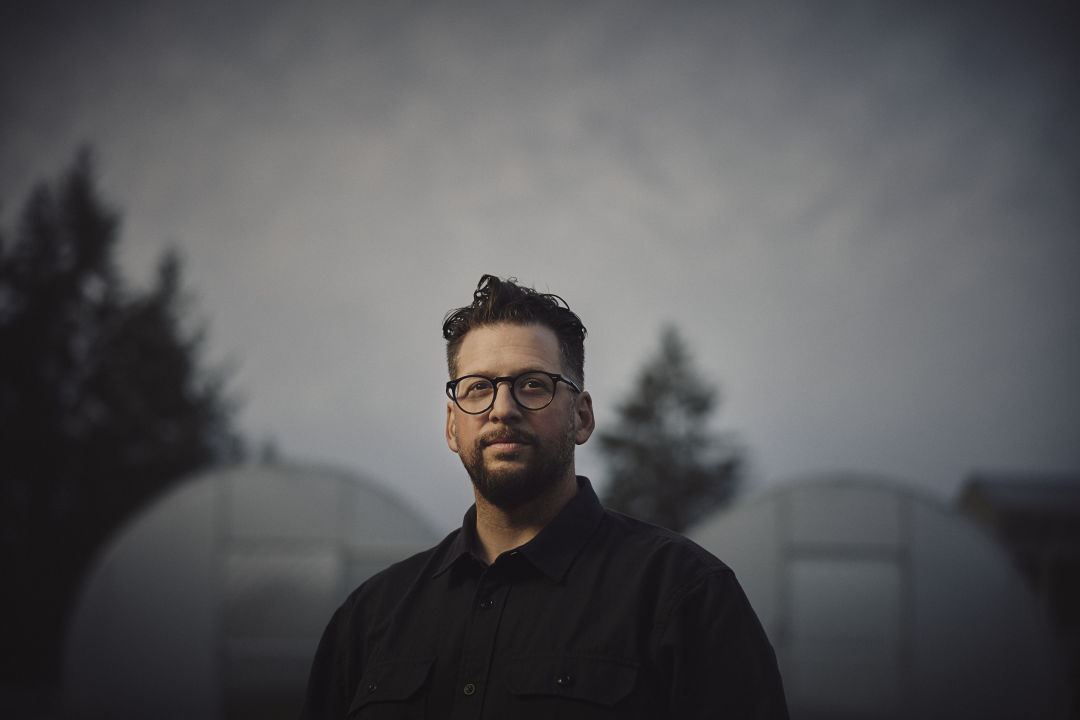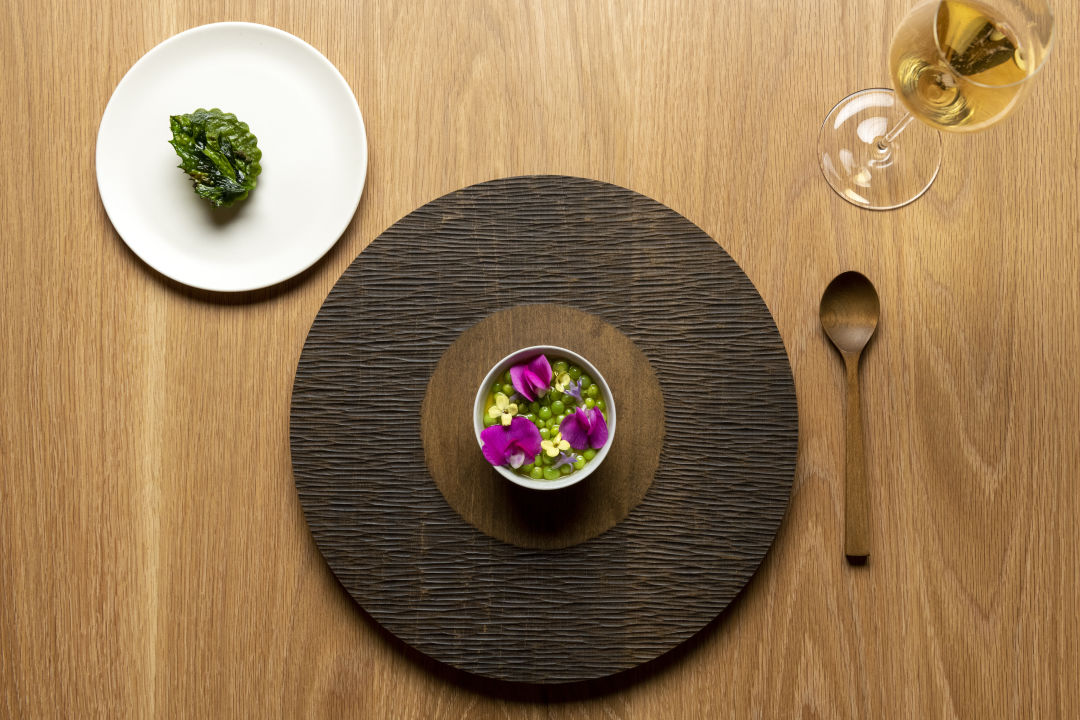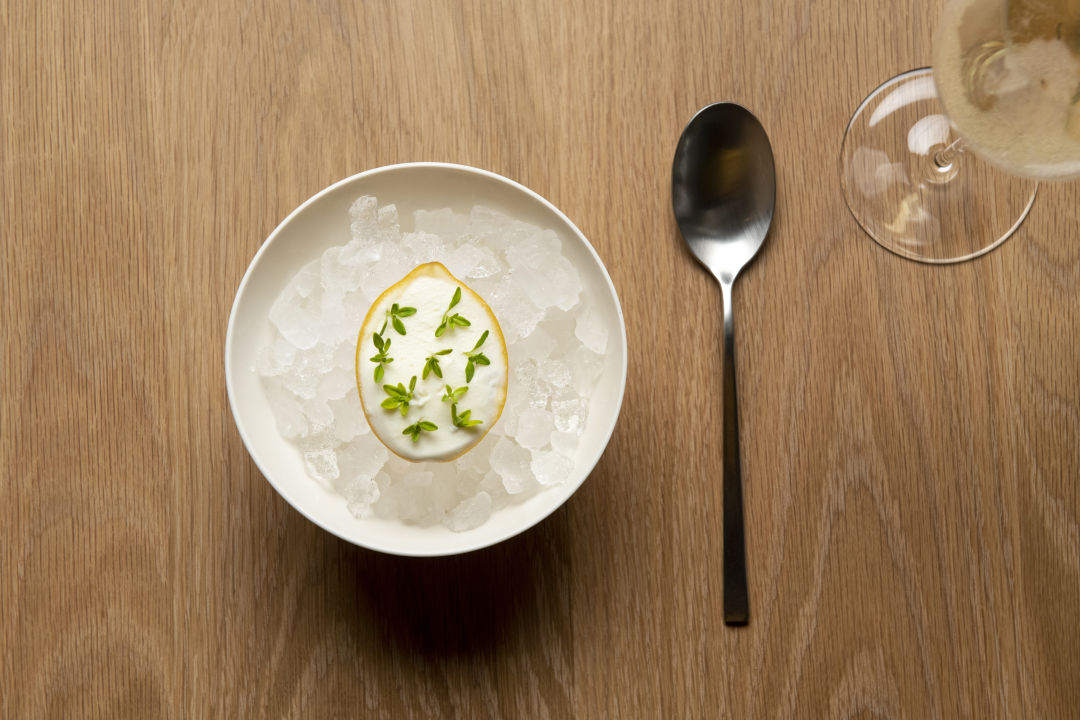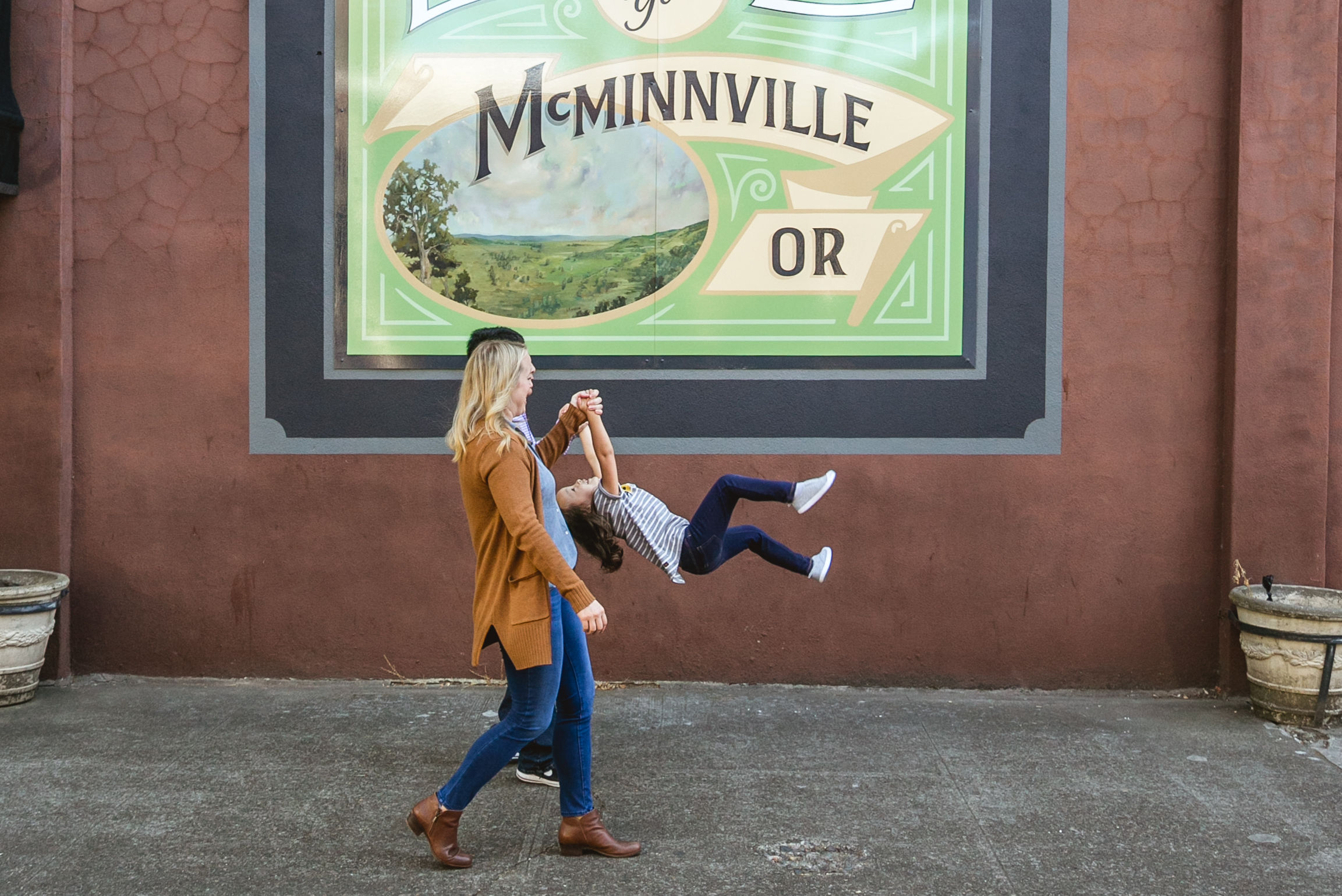6 Questions for Chef Matt Lightner of Okta, McMinnville’s Most Anticipated Restaurant

Image: Courtesy Leah Nash
One of Oregon’s most anticipated restaurants from a highly lauded chef is scheduled to open this week, not in a trendy Portland neighborhood, but in McMinnville. Okta, the restaurant inside the new boutique Tributary Hotel, opens its doors July 13, with newly-returned-to-Oregon Matt Lightner—the former Castagna chef who moved to New York City in 2011 to open Atera, and went on to earn two Michelin stars and a three-star New York Times review—behind it.
What sets Okta apart? Other than its chef’s résumé, the restaurant also has its own farm, located just seven miles away, where Lightner himself helps tend to the crops. This is a type of farm-to-table rarely seen in the city that practically invented farm-to-table, where Lightner can grow whatever obscure produce he pleases—a far cry from what you’d find at the grocery store or even at most Portland farmers markets. In the world of meteorology, okta is a unit of measurement for cloud cover, and Lightner is attuned to how slight shifts in climates, microclimates, and microseasons all affect the harvest. Meat and seafood will come from other Oregon producers, while wines will come from small family-owned, farm-focused wineries in Oregon and around the world. The Tributary Hotel, where Okta lives, is a 100 year-old restored historic building with eight suites, priced from $975 a night; below the restaurant downstairs, there’s a lounge with a wine cellar and bar.

Duck egg custard with peas
Image: Courtesy Evan Sung
Okta will offer its dinnertime tasting menu for $165 on Wednesday and Thursdays, and $260 for Friday through Sunday. Weeknight tasting menus are smaller, about 6-7 courses each, while the weekend menus consist of about 15-20 courses. With both menus, customers can opt for add-on courses; a wine pairing is also on offer for $160. “We wanted to try to make it an experience that curates to what the diner wants in that moment,” says Lightner. Reservations can be made on Resy.

Meyer lemon with cultured cream and lemon thyme
Image: Courtesy Evan Sung
We spoke with Lightner about farming, the upcoming menu, his take on hotel breakfast, and more.
You’re living in rural Oregon near McMinnville now. How does that compare to your past lives in Portland and NYC? And having owned a restaurant in Napa a few years back, what do you think of people who describe McMinnville as the new Napa?
I really love what's going on in McMinnville. McMinnville is super unique. It’s close enough to Portland but it's far enough that it still has its own identity and its own energy and its own things going on.
McMinnville, it's very diverse in what's being grown and what's being done. Not to say like there's not a lot of places like that in Napa or Sonoma. But in McMinnville, what you'll see is a lot of really interesting people doing also really incredible regenerative style farming, even if that's for cattle or if that's for hazelnuts, or if that's orchards from from walnuts to pears, things like that. So there is a real abundance. It's real countryside.
Did you have a lot of experience in farming prior to this project? Are you doing the farming yourself for Okta?
As far as the details of farming, not as much as I’d like to, but I've always had a passion for farming. I've always had a passion for really understanding the biodiversity of the ground up. If you want exceptional food at this level, it has to start so much more in-depth than what you see on a plate. And that also allows me to be as creative as I want to be.
I’m working with a farmer. Her name is Katie Boeh, and she used to have her own farm on Sauvie Island called Fox and Bear, and we connected and began to plot out everything. She does the majority of the farming; she’s kind of like a superhuman farmer.
How did the weird weather this year—massive rains, the heat wave—affect the farm?
This is our second year farming the land, and we spent the winter planning for the whole year. We had about 90 varieties of plants in our greenhouse that needed to go into the ground and it just kept raining and raining and raining. By the time we got the plants into the ground, they were really stressed. And then when your plants are stressed, they become more affected by weather, and they become more affected by pests as well. So it's all about being able to pivot, because even though some plants didn't work really well, we had some things work incredibly well, which is so strange. Some of our winter squash look a little hurt and so we might not have an abundance, but what we have will be really amazing.
Can you share a couple dishes that you’re planning to have on the opening menu?
I have to stick with the ethos. The ethos is, we're going after the things that we have that are in season in that moment—we don’t want to change that to try to make things consistent on paper. So at the moment the restaurant opens, we’ll have those gold beets, but what they’re gonna go with is really going to depend on what survives in the next week, how we're cooking with it, the other ingredients. We have these really beautiful icicle turnips, you’ll see those on the menu. You'll see anything from young fennel to cylindra beets to coriander blossoms to ice lettuce. For instance, for a friends and family dinner, we’re doing wild ling cod, we’re taking carrots from the farm and making a carrot amazake, and what goes with that could change daily or it could stay the same.
I saw you’re going to be doing breakfast for the Tributary Hotel. What’s your approach to hotel breakfast?
For me, the perfect kind of experience for breakfast relies on being able to taste a lot of different things and having an abundance, a full smorgasbord. I actually really love great hotels that do amazing continental breakfast with different juices, different spreads, different breads, different types of eggs, and different types of cheese and meat. We’re working with farms representing some of the same values, and then doing as much of it in house as we can. We’ll make our own croissants, we’ll make our own bread out of a woodfire oven.
What are you most excited for customers to experience at Okta?
We talk about how this project is a conversation and an evolution. I think the way we're building this project, literally from the ground up, is allowing us to build something that can evolve and become better and better for many years. And so I'm really interested in showing people where we're at now, and then just watch where we can get with the land, progressiveness, creativity, and quality of products. You know, I think that if we continue on this path that we're building for ourselves, it's gonna be really fun to watch.
Okta, 618 NE 3rd St, McMinnville, oktaoregon.com, @oktaoregon




